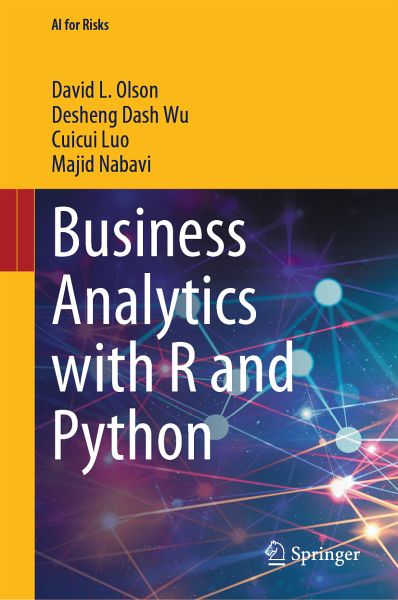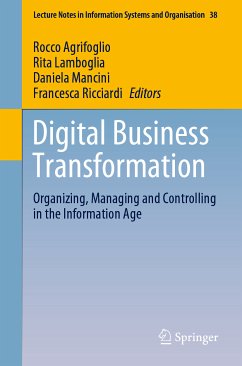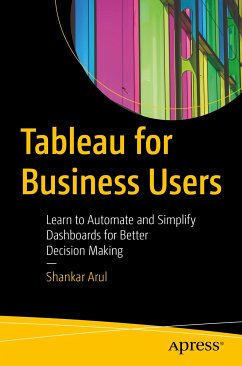
Business Analytics with R and Python (eBook, PDF)
Versandkostenfrei!
Sofort per Download lieferbar
72,95 €
inkl. MwSt.
Weitere Ausgaben:

PAYBACK Punkte
36 °P sammeln!
This book provides an overview of data mining methods in the field of business. Business management faces challenges in serving customers in better ways, in identifying risks, and analyzing the impact of decisions. Of the three types of analytic tools, descriptive analytics focuses on what has happened and predictive analytics extends statistical and/or artificial intelligence to provide forecasting capability. Chapter 1 provides an overview of business management problems. Chapter 2 describes how analytics and knowledge management have been used to better cope with these problems. Chapter 3 d...
This book provides an overview of data mining methods in the field of business. Business management faces challenges in serving customers in better ways, in identifying risks, and analyzing the impact of decisions. Of the three types of analytic tools, descriptive analytics focuses on what has happened and predictive analytics extends statistical and/or artificial intelligence to provide forecasting capability. Chapter 1 provides an overview of business management problems. Chapter 2 describes how analytics and knowledge management have been used to better cope with these problems. Chapter 3 describes initial data visualization tools. Chapter 4 describes association rules and software support. Chapter 5 describes cluster analysis with software demonstration. Chapter 6 discusses time series analysis with software demonstration. Chapter 7 describes predictive classification data mining tools. Applications of the context of management are presented in Chapter 8. Chapter 9 covers prescriptive modeling in business and applications of artificial intelligence.
Dieser Download kann aus rechtlichen Gründen nur mit Rechnungsadresse in A, B, BG, CY, CZ, D, DK, EW, E, FIN, F, GR, HR, H, IRL, I, LT, L, LR, M, NL, PL, P, R, S, SLO, SK ausgeliefert werden.












